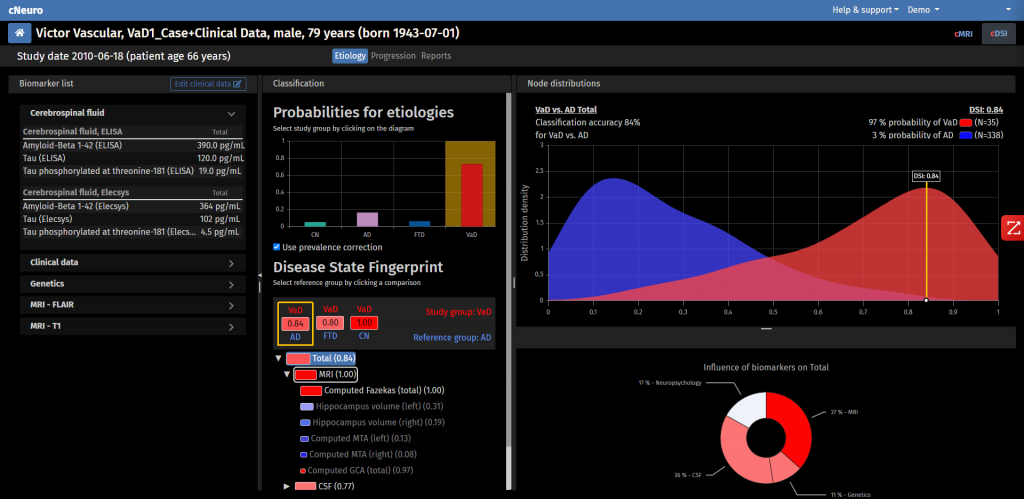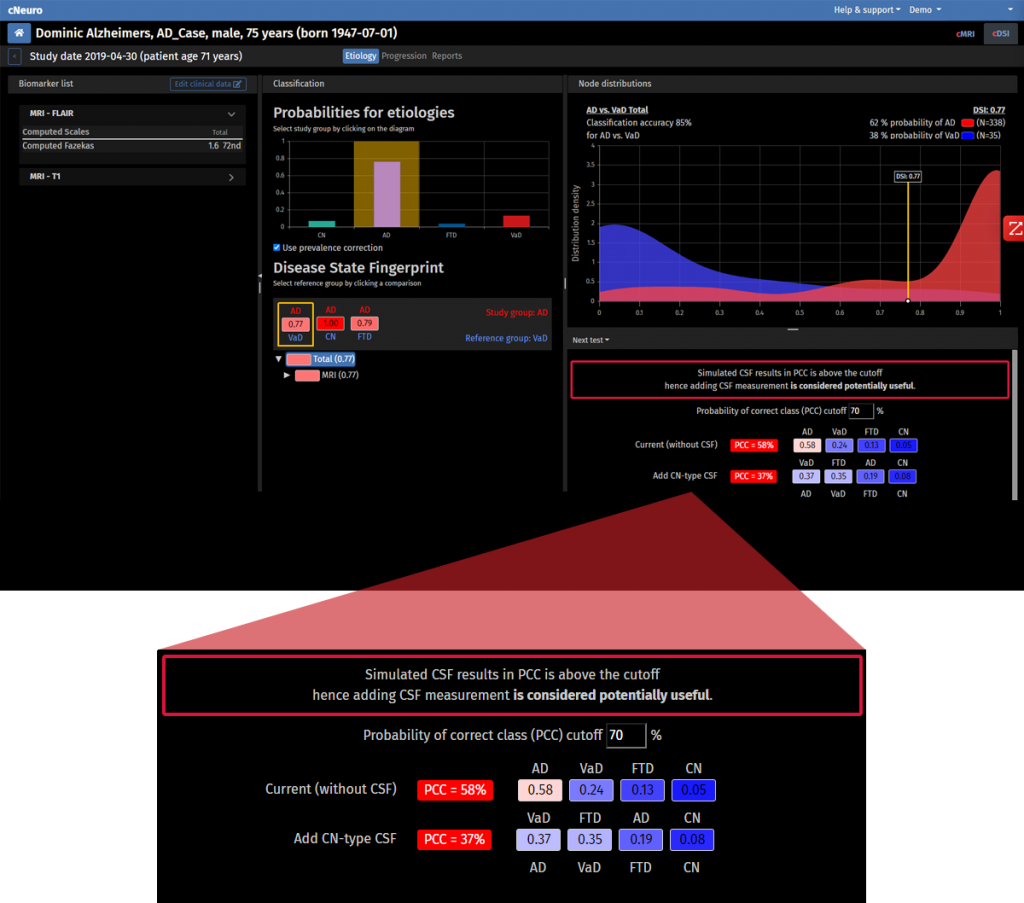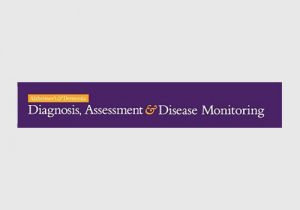cNeuro® cDSI
Our AI-driven software tools support early detection, differential diagnosis, prediction of progression, and patient monitoring in memory disorders.
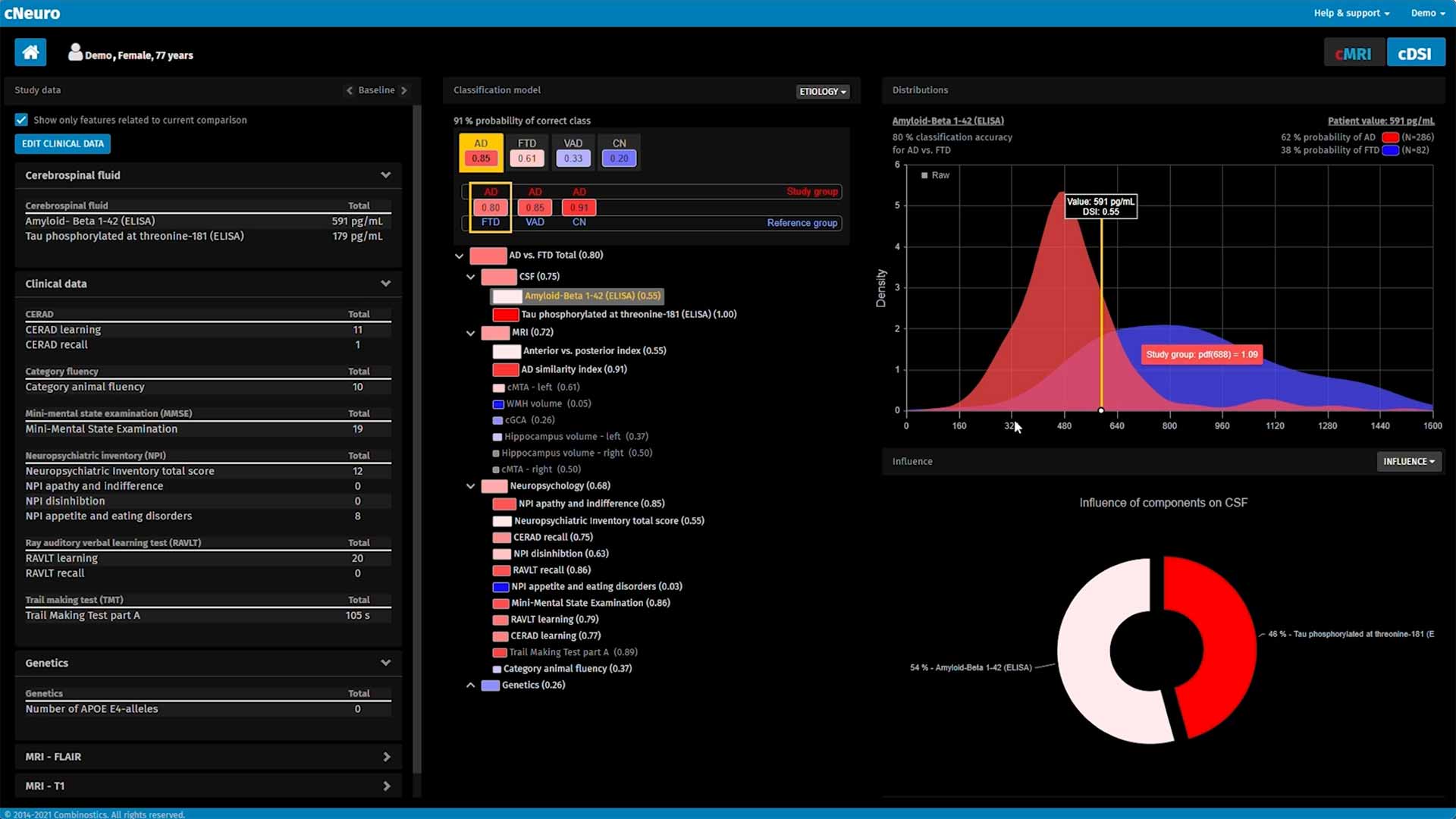
Watch a demo of cNeuro cDSI
Access and review key patient data in one location
- Age
- Gender
- MMSE
- MoCA
- RAVLT/CERAD recall and delayed recall
- TMT A&B
- Animal fluency
- NPI
- CSF
- APOE
- Volumes on brain structures
- Lesion load
- Disease-specific biomarkers
Diagnose earlier and with greater confidence
cDSI integrates multiple sources of patient data and compares the findings to a large database of previously diagnosed cases, providing a quantitative estimate (the disease state index) of the patient’s similarity with different disease groups. This not only improves the consistency of neurological interpretations but also provides information about which disease is the most likely diagnosis using intuitive, interactive visualizations.
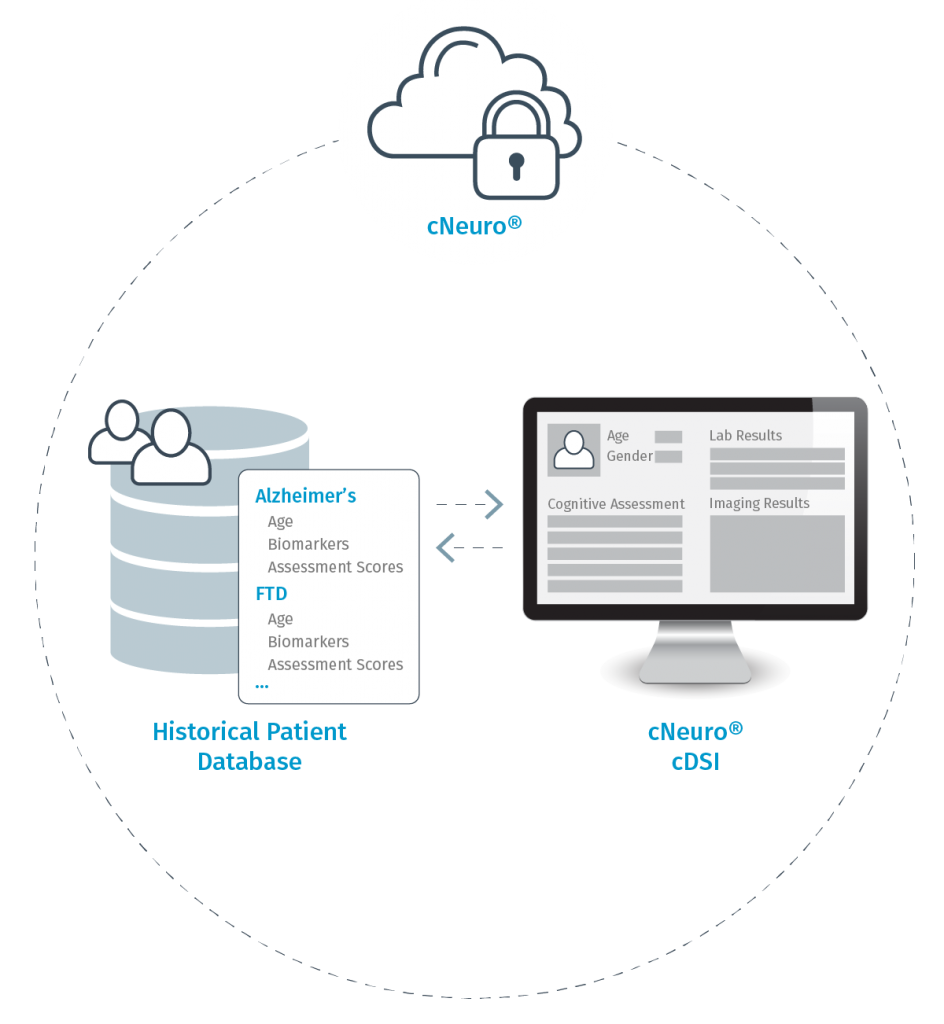

Data-driven Differential Diagnosis
- Alzheimer's disease
- Frontotemporal dementia
- Vascular dementia
- Cognitively normal

Data-driven Differential Diagnosis
- Alzheimer's disease
- Frontotemporal dementia
- Vascular dementia
- Cognitively normal
Use decision models for diagnosis
Decision models are available for Alzheimer’s disease (AD), frontotemporal dementia (FTD), vascular dementia (VaD), and cognitively normal (CN).
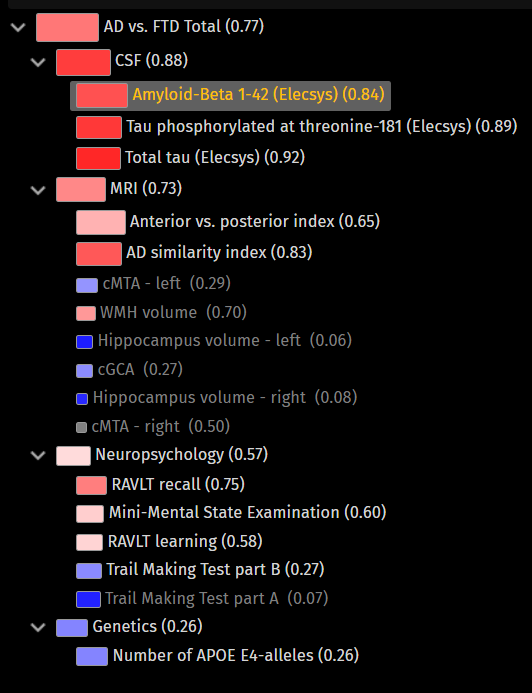

Decision model for etiology showing the highest similarity to FTD.
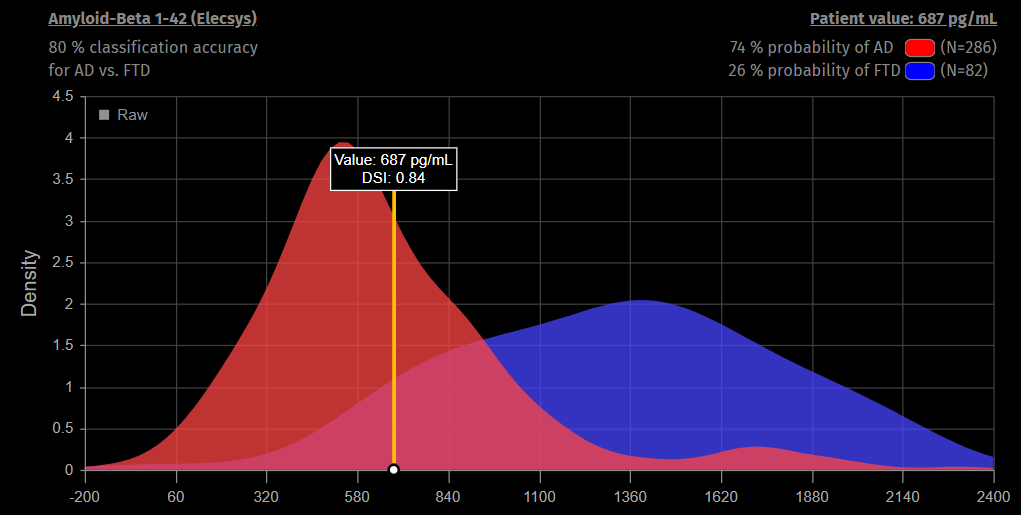
A study showed that our computer-supported prediction reduces CSF testing to only 26% of cases, without compromising diagnostic accuracy.
cDSI-Related Publications
Regulatory Compliance
CE marked and excluded from the definition of a medical device in the U.S based on section 520(o)(1)(E) of the Food Drug and Cosmetic Act.
U.S. Patents
No. 7,840,510 and 10,372,786
Security
- All data transfer uses SSL encryption
- Stored data are anonymized and encrypted
- More information is available in a separate security statement.


